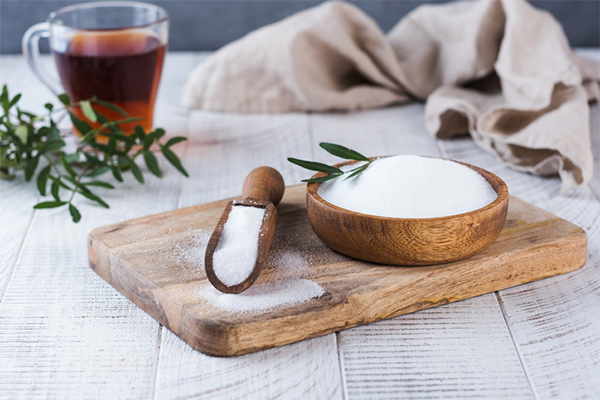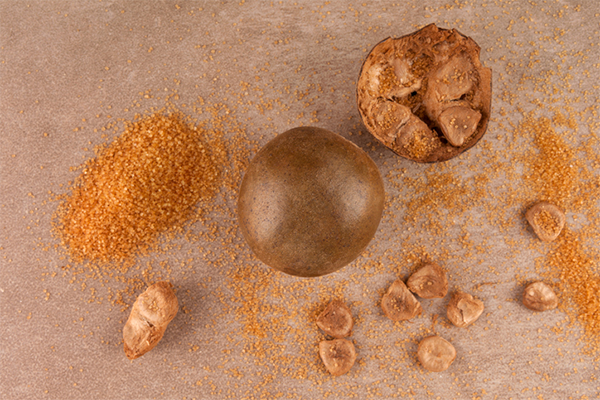
Erythritol Vs Monk Fruit: Which Is Better?
Table of Contents
These days, natural sugar substitutes and alternate sweeteners fill the sugar aisle. Two preferred sweet swaps are erythritol and monk fruit. Erythritol is a sugar alcohol, whilst monk fruit (luo han guo) arrives from an Asian fruit. The two are non-nutritive, zero-calorie sweeteners.
Here’s a swift rundown of how erythritol and monk fruit look at, so you can determine which a person (if either) is appropriate for you.
What Is Erythritol?
Erythritol is a sugar alcohol developed by fermenting wheat or corn starch, says Jamie Nadeau, RDN, a registered dietitian. It’s naturally found in fruits like grapes and peaches, mushrooms and fermented food items like beer, soy sauce, and cheese. You will locate erythritol in “zero-calorie” or “diet” gum, sweet, chocolate, and sweeteners (including some that also include monk fruit).
Professionals of erythritol
1. Does not affect blood sugar
Erythritol provides no energy.
It is excreted in urine and doesn’t effects your blood glucose and insulin degrees.
2. Not “too” sweet
Sugar alcohols are a lot less sweet than other sugar substitutes, ranging from 25% to 100% of sugar’s sweetness. Erythritol is about 60% to 80% as sweet as sugar.
3. Doesn’t endorse tooth decay
Unlike sugar and other sweeteners that contain carbs, erythritol won’t lead to cavities or tooth decay.
4. No aftertaste
Unlike a lot of other zero-calorie sweeteners, erythritol is assumed not to depart a funny style in your mouth. And, it is often blended with much more intense sweeteners to hide or minimize their aftertaste.
Disadvantages of erythritol
5. It can bring about GI concerns
“Sugar alcohols like erythritol are infamous for causing GI distress such as gas, bloating, as effectively as causing a laxative effect,” suggests Nadeau.
Far too a great deal can trigger diarrhea, but most balanced grown ups can tolerate erythritol in moderation, she states. Start with a modest amount of money to steer clear of abdomen upset.
6. Not a “whole food”
In get to extract the sweet factors, Kreutzer points out that erythritol demands to be intensely processed.
What Is Monk Fruit?
“Monk fruit extract has been made use of in south China for hundreds of years but is reasonably new to the rest of the environment,” describes Nadeau.
Also identified as luo han guo, monk fruit is utilised in traditional Chinese medication.
Monk fruit is in the exact same plant family members as gourds, pumpkins, and squash.
Execs of monk fruit
1. Includes zero calories
Like erythritol, monk fruit is a non-nutritive sweetener, claims Cary Kreutzer, EdD, MPH, RDN, FAND, an affiliate medical professor at the College of Southern California Leonard Davis Faculty of Gerontology and USC Keck University of Drugs. That signifies it doesn’t supply any carbs, fats, or protein — it only provides a sweet flavor.
2. Includes no carbs
Monk fruit is ideal for all those on low-carb diets (including the ketogenic diet plan).
3. Sweeter than sugar
Monk fruit is 100 to 250 instances sweeter than granulated sugar, so you can use considerably less of it to realize the identical stage of sweetness.
Disadvantages of monk fruit
4. Not a “whole food”
Monk fruit sweetener wants to be processed in a laboratory to isolate the sweet parts, describes Kreutzer.
5. Might have an aftertaste
Monk fruit may well have a “funny” flavor to some.
However, a person examine identified that it’s not as potent as other choice sweeteners. A 2018 study in the Journal of Dairy Science uncovered that of five lowered-sugar blends in vanilla protein shakes, the 1 with the most monk fruit (and 25% stevia) tasted the closest to sugar.
Is Erythritol or Monk Fruit Much better for You?
“For most healthy adults, monk fruit extract and erythritol can both of those be beneficial sugar solutions in moderation,” suggests Nadeau.
The Fda has authorized both erythritol and monk fruit as GRAS or generally regarded as secure.


